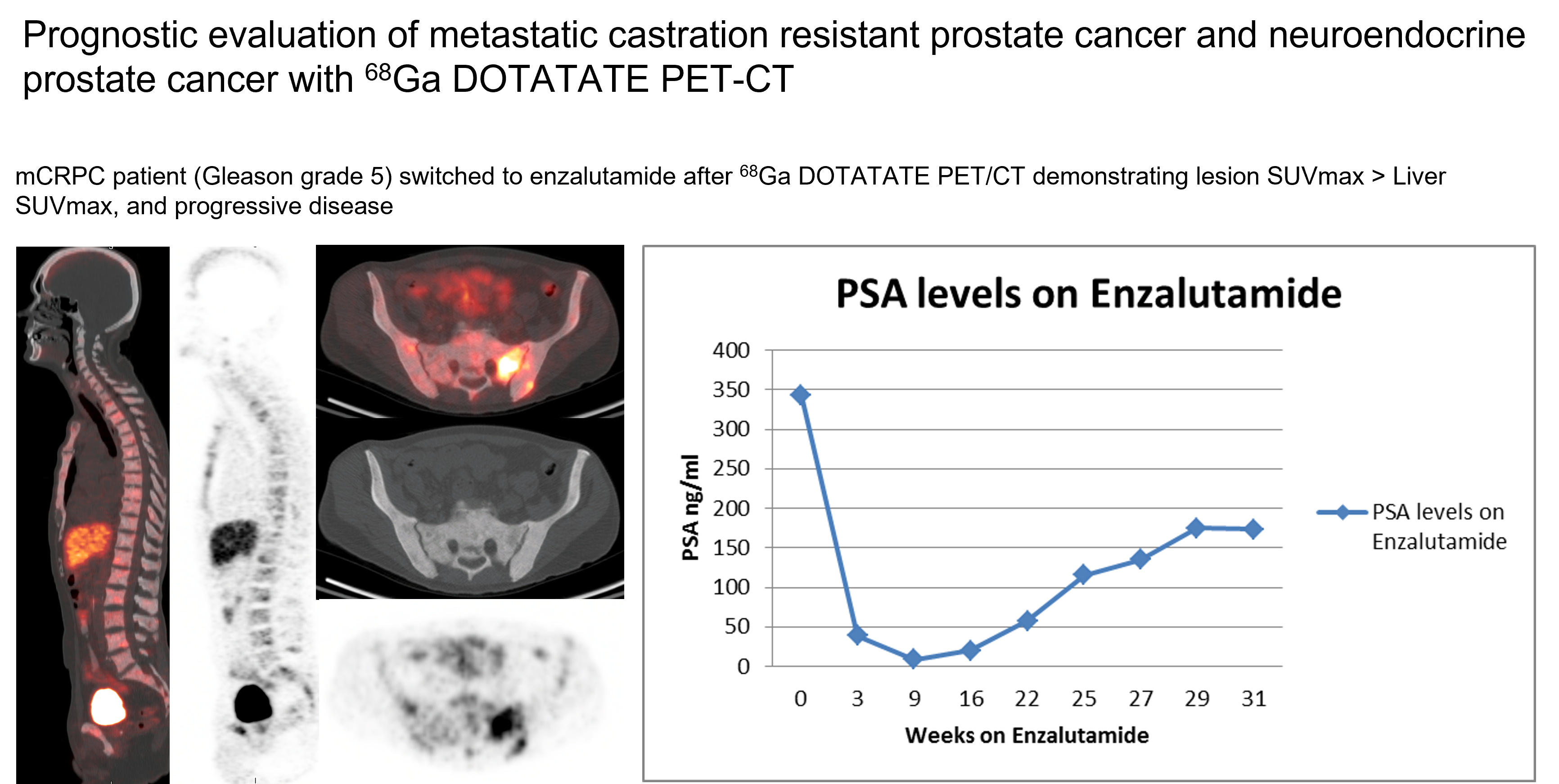Objectives: Prostate cancer is well known to express high levels of somatostatin receptors and preliminary data suggests that PET imaging with the somatostatin analog, 68Ga-DOTATATE, may allow for whole body staging of patients with metastatic castration resistant prostate cancer (mCRPC) and neuroendocrine prostate cancer (NePC). This study explores the utility of 68Ga-DOTATATE PET-CT to identify metastatic deposits in men with mCRPC and NePC and prognosticate disease progression. Methods: 68Ga-DOTATATE PET-CT was performed in 17 patients with mCRPC and of those 2/17 had NePC. Semiquantitative analysis with standardized uptake values (SUV) (e.g. SUVmax, SUVmean) was performed for each metastatic lesion and reference background tissues. 68Ga-DOTATATE uptake in metastatic deposits was further classified as: mild (less than liver), moderate (up to liver average), or marked (greater than liver). Serial prostate-specific antigen measurements and patient survival were followed up to 3 years after PET imaging to assess response to standard of care treatment. Results: All patients had at least one metastic lesion with identifiable 68Ga-DOTATATE uptake. Marked 68Ga-DOTATATE uptake was found in 7/17 patients, including both NePC patients, and all were non-responders to systemic therapy and died within the follow up period, with a mean time to death of 8.1 months. 3 patients had mild 68Ga-DOTATATE uptake, and all were responders to systemic therapy and were alive 36 months after 68Ga-DOTATATE imaging. Conclusions: 68Ga-DOTATATE is able to identify mCRPC and NePC metastatic deposits, and lesions with 68Ga-DOTATATE uptake > liver may portend poor outcomes in patients with mCRPC.

